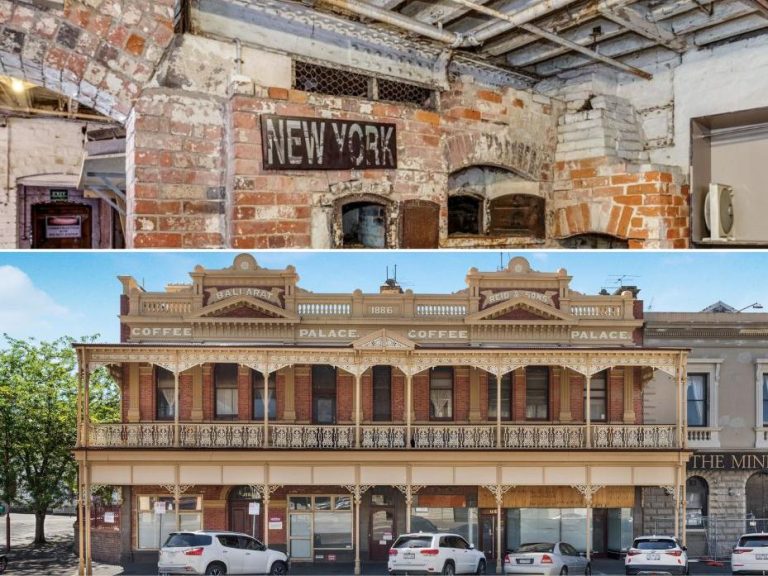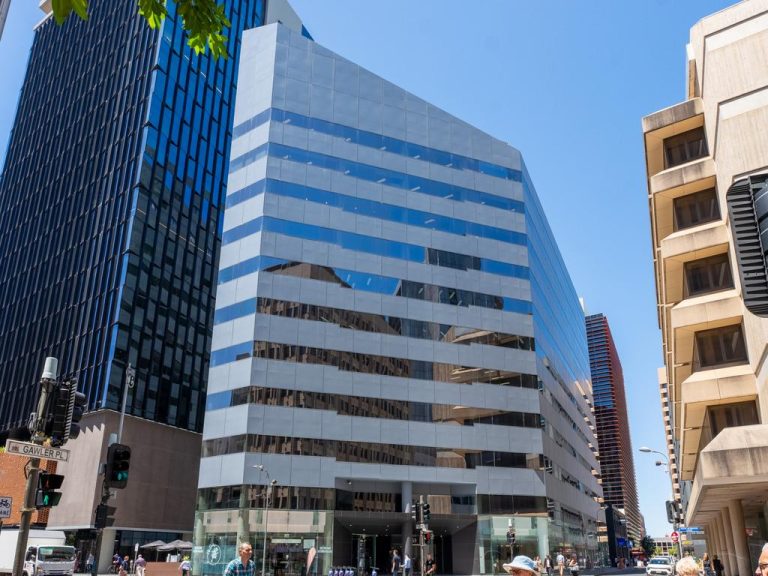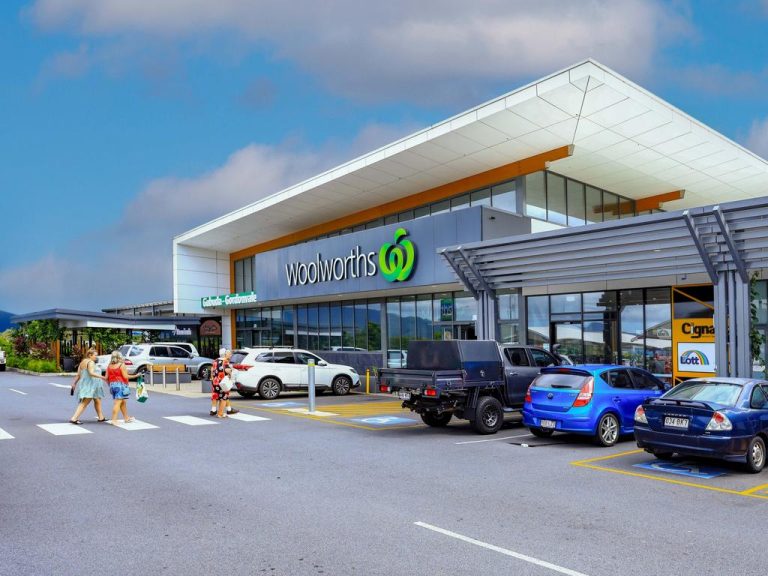Country pubs in prime position as capital pours into hotels

The famed Lorne Hotel.
When pub kings Justin Hemmes and Arthur Laundy are buying, they tend to be on to a good thing. For more than a year that good thing has been regional and coastal pubs.
Billionaire entertainment tsar Hemmes is best known for his city properties but he has made big purchases at coastal hot spots ranging from NSW’s Byron Bay and Narooma to the famed Lorne Hotel on the Great Ocean Road in Victoria.
The Laundy family, hospitality veterans, has been just as active with pub scion Stu Laundy teaming with his father, Arthur, to acquire the Bayview Hotel on the NSW Central Coast and the Mercure at Port Macquarie.
They’re certainly not alone. The Oscars Hotel juggernaut last month picked up the Caves Beach Hotel in Lake Macquarie, NSW, and the Red Steer Hotel and Motel, Wagga Wagga, was bought by the Feros Group.

The Caves Beach Hotel at Lake Macquarie.
HTL property director Xavier Plunkett is bullish about markets like Wagga Wagga where $100m of pubs have sold over the last two years.
“We continue to see strong capital appreciation in the regional pub market. Under-capitalised hotel assets in strong regional centres…continue to be highly sought after by experienced Sydney-based hoteliers seeking value outside of traditional metropolitan markets,” he said.
The action will continue.
“Last month we tabled our considered view that $1bn worth of hotel assets would transact during the June quarter of this year,” HTL Property managing director Andrew Jolliffe said. “Accordingly, and on a pro-rated basis, we are on track with this forecast, and reconfirm our earlier guidance for a record year again in 2022.”
Mr Jolliffe said that after 100 NSW hotels sold last year, this year had started in identical proportions.
“Notwithstanding the patent similarities in terms of national sale volumes when comparing the first quarter of both 2021 and 2022, this year has already enjoyed the national record hotel sale – the Crossroads Hotel in Casula – and the record regional hotel with the sale of the Victoria Hotel in Wagga Wagga,” Mr Jolliffe said.
“The price points achieved reflect a continuation of the firm yields which successful investors are regularly applying in order to secure assets of quality.”
The tycoons are buying more.
Mr Hemmes’ Merivale operation in March made its fourth acquisition in just a single coastal township, picking up Lynch’s Hotel in Narooma.

Lynch’s Hotel in Narooma.
“The flight to coastal hotel assets is not only a statewide but a national trend,” JLL Hotels senior vice-president Ben McDonald said. After the deal he said negotiations were taking place on more than $150m of coastal hotel assets, but the figure is likely higher now.
JLL Hotels managing director John Musca said there was record levels of capital flowing to the sector.
“We have seen over $1.3bn of pub hotel transactions nationally in the last 12 months, with significant activity now emerging in the traditionally tighter-held markets of Melbourne and Adelaide, testament to the resurgent capital prioritisation of the sector,” Mr Musca said.
In the regions, JLL Hotels is offering major pubs including the Caledonian Hotel in Singleton and the Parkview Hotel, Orange.
JLL Hotels vice president Kate MacDonald, says hotel investor demand is “at an highest in regional NSW, in particular for locations within a 2–3-hour drive of Sydney”.
Bigger groups are looking to acquire as metropolitan yields are so tight and they can get 7.5 per cent to 9 per cent in the regions where trade has also blossomed on the back of domestic tourism.
“There is an appetite from traditional city buyers to get a little bit of the country air and a better yield at the same time,” she said.

The famed Lorne Hotel.
Whether in the country or city, the humble pub has long held a special place in Australians’ hearts – and portfolios of commercial investors – but sales data suggests watering holes in regional areas are buyers’ preferred tipple right now.
Nationwide Real Capital Analytics data for sales above $1m in March shows 88 per cent of pub sales were outside Australian city central business districts, with 55 per cent in regional areas and 33 per cent in a capital but not in the centre. Only 12 per cent of the sales were CBD pubs. PropTrack economist Anne Flaherty said the data backed up anecdotal evidence of the growing popularity of regional pubs during the past year and a slowing of pub sales in the cities.
“And given regional pubs are also far more likely to sell at below that $1m figure, say in somewhere like Tasmania, the real proportion would be even higher in reality,” she said.
The trend was clear and indicated country and city pubs appeared to be on different trajectories into the future, Ms Flaherty said.
“What we can see is that regional NSW (26 per cent) has seen more pubs sell than anywhere else in Australia. That’s followed by suburban Melbourne (15 per cent), regional Queensland (11 per cent), regional Victoria (10 per cent) and then suburban Sydney (8 per cent).”
Sydney’s CBD ranks ninth, with 4 per cent of total sales. Adelaide, Perth and Melbourne’s CBDs rate last, with only 1 per cent each of sales.
“While we’re starting to see a bit of recovery in our CBDs post-lockdowns, there’s still significantly less foot traffic, and it will take time to fully bounce back, making those pubs outside a city a good alternative,” Ms Flaherty said.
While the pandemic “supercharged” a population shift out of cities and into regional areas, the trend predated Covid and was a big part of why country pubs appealed today, Ms Flaherty said.
In the pub game, population equalled patrons, she said.

The Bayview Hotel in Woy Woy
“Covid has accelerated that existing trend of people moving to the country and investors will look at that as a bonus for those ‘community’-type pubs, as more potential patrons.
“The other factor is the big increase in domestic tourism, which again drives patronage. Even now with international borders reopened, there is still going to be more domestic tourism than what we saw pre-Covid. That’s supporting a lot of these regional areas as well and making them attractive for investors,” Ms Flaherty said.
While the regional trend was clear, in the city, the picture was more complicated, Ms Flaherty said.
“First off, you’re looking at a very different price point and it’s natural in a CBD that there might be alternative uses for a particular property and its site (that’s on the market), so you’re looking at a different kind of investor altogether,” she said.
What a pub will be used for post-purchase can be less clear in the city. The widely held belief that “all the city pubs are being turned into apartments” didn’t necessarily stack up though, Ms Flaherty said.
CBRE hotels director Mathew George said that, whether in the country or city, pubs would remain part of Australia’s DNA.
“Pubs and hotels will always be the heart of their community; they are the place that people go to for celebrations, commiserations, to be connected to their community, social occasions or for those times when community needs to band together in times of crisis.”







